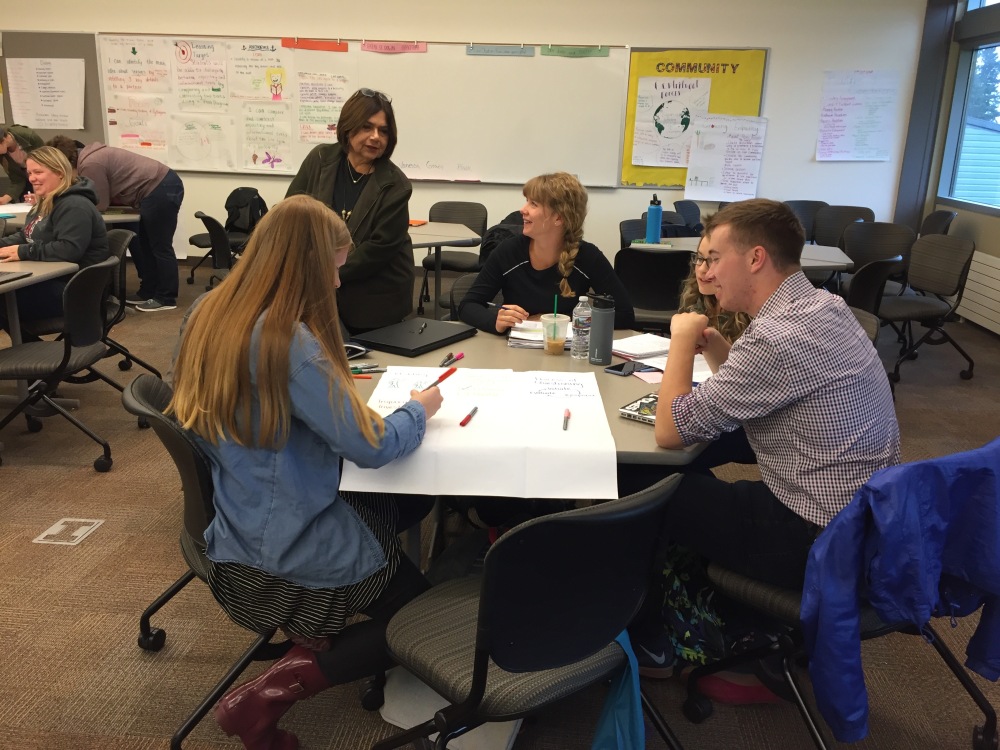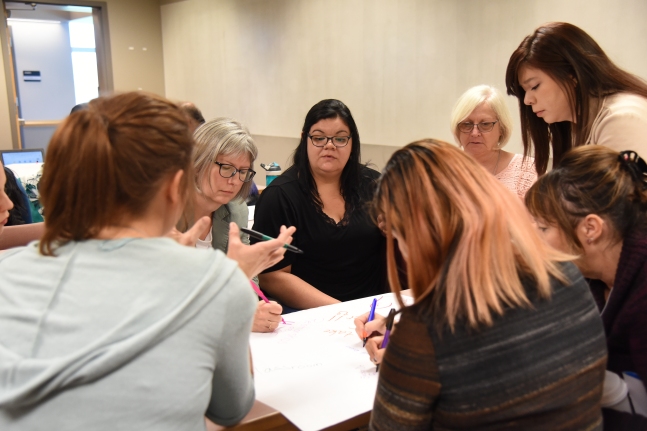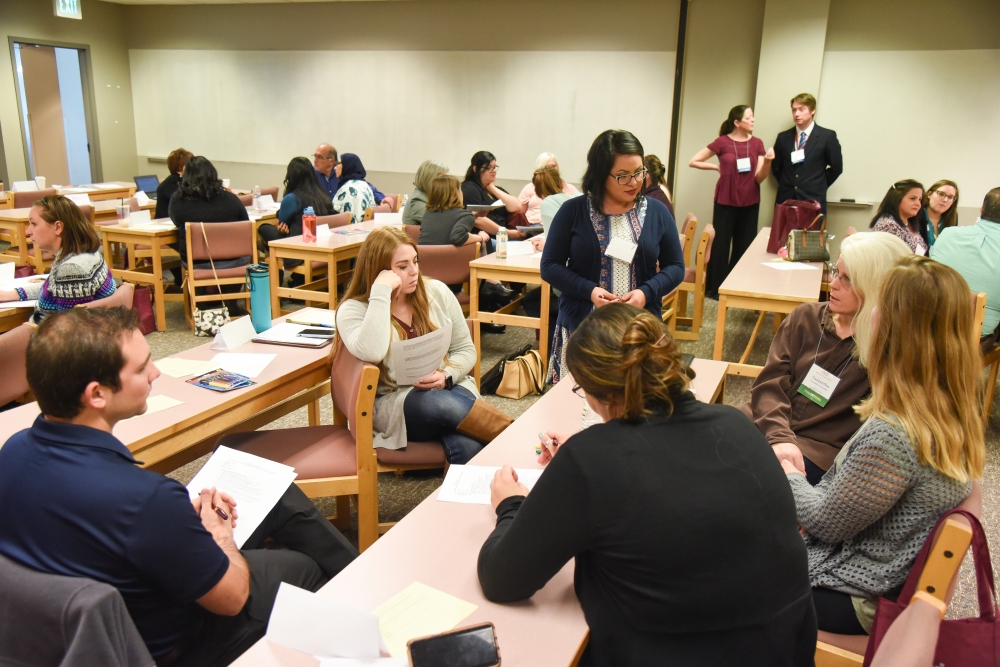Gisela Ernst-Slavit is spearheading a grant to improve the way schools and teachers can support students who are learning English along with their lessons. Communities and families will benefit too.
For many years, Gisela Ernst-Slavit has been troubled by the mismatch between the K-12 student population and elementary-school teachers. While the U.S. student body is growing more ethnically and linguistically diverse, there is a shortage of teachers who mirror the backgrounds of their students and who are prepared to teach students who are learning English as a second or third language. Those students are trying to learn their lessons in a language they do not understand well. And their parents may not always be able to help them.

Ernst-Slavit at WSU Vancouver
The number of students who are learning the English language as they go to school is growing in Washington state as well as the country. “Seventy-five percent of K-5 English language learners are born in the United States,” said Ernst-Slavit, professor of education at WSU Vancouver. “School districts are trying to implement dual-language programs for students. But it’s hard to find qualified bilingual teachers. In 2012, the state of Washington certified only 14 bilingual education teachers for the whole state.”
Ernst-Slavit hopes to develop a remedy through a pilot program funded by a $2.2 million grant from the U.S. Department of Education. It is called ELL-IMPACT, for Equity for Language Learners—Improving Practices and Acquisition of Culturally Responsive Teaching. If successful, the program will become a nationwide model for improving teacher preparation for our changing demographics.
“The new generation of students—both K-12 and college, do not fit neatly organized boxes,” Ernst-Slavit said. “Their backgrounds and experiences and needs and talents are different, because they are a diverse group.”
Led by Ernst-Slavit and four co-principal investigators, all from WSU, ELL-IMPACT is working on two campuses—Vancouver and Tri-Cities—to train 52 new bilingual teachers over five years. Currently, both Vancouver and Tri-Cities have cohorts of 11 students who are expected to graduate in 2019. Both campuses are partnering with local school districts—Vancouver with the Evergreen district, and Tri-Cities with six Eastern Washington districts.
What is most remarkable is who these students are. They are paraprofessionals—instructional assistants—who are already working in a school or district supporting English language learners. They know how to help students who are learning English, but they are not accredited (or paid) as teachers.

Esperanza Huerta guides a group of local educators during an activity
“Many paraprofessionals play an incredible role as brokers between families, community and school,” Ernst-Slavit said. “Research indicates that most paraprofessionals live in the communities in which they teach, whereas most teachers do not. And most teachers don’t understand the community dynamics, but paraprofessionals do. They speak the language of the children and have experienced some of the challenges that English language learners face.”
The students were selected by their school districts. They came to the United States from Cuba, Panama, Mexico, Honduras and Hungary. While some have degrees from other countries or in other disciplines, most would probably not have earned a teaching degree without this program.
The grant covers most of their tuition. The district accommodates their schedules so they can attend conferences and make presentations. “While they work full-time at their districts, they take classes in the evening,” Ernst-Slavit said. Because WSU Vancouver is partnering with just one district, the education professors are helping out the students—some of whom work multiple jobs—by bringing classes to them, holding them in Evergreen district conference rooms rather than on the Vancouver campus.
The project is directly linked with one of WSU’s Grand Challenges: Opportunity and equity. It seeks to promote equity and to improve educational opportunities for two sets of students: college students preparing to become teachers, and English language K-8 students. The grant has three focus areas:
- Improve parental, family and community engagement
- Examine the effectiveness of small-group instructional strategies currently used by participating district
- Examine the effectiveness and viability of alternative route teacher preparation programs
“The key thing is collaboration—the university, the school district and the community working together,” Ernst-Slavit said. She is thrilled at the support ELL-IMPACT is getting, and at the progress the first cohort is making. “There is dedication, talent, sensitivity—and a big heart,” she said.
Ernst-Slavit’s co-PIs are Judy Morrison, Sarah Newcomer and Yuliya Ardasheva at WSU Tri Cities, and Kira Carbonneau at WSU Pullman. Two Ph.D. students are also involved: Lindsay Lightner on the Tri-Cities campus and Steve Morrison at Vancouver.

Melodie Alfaro-Ulsh sharing her parent and community involvement program with local teachers in Tri-Cities
